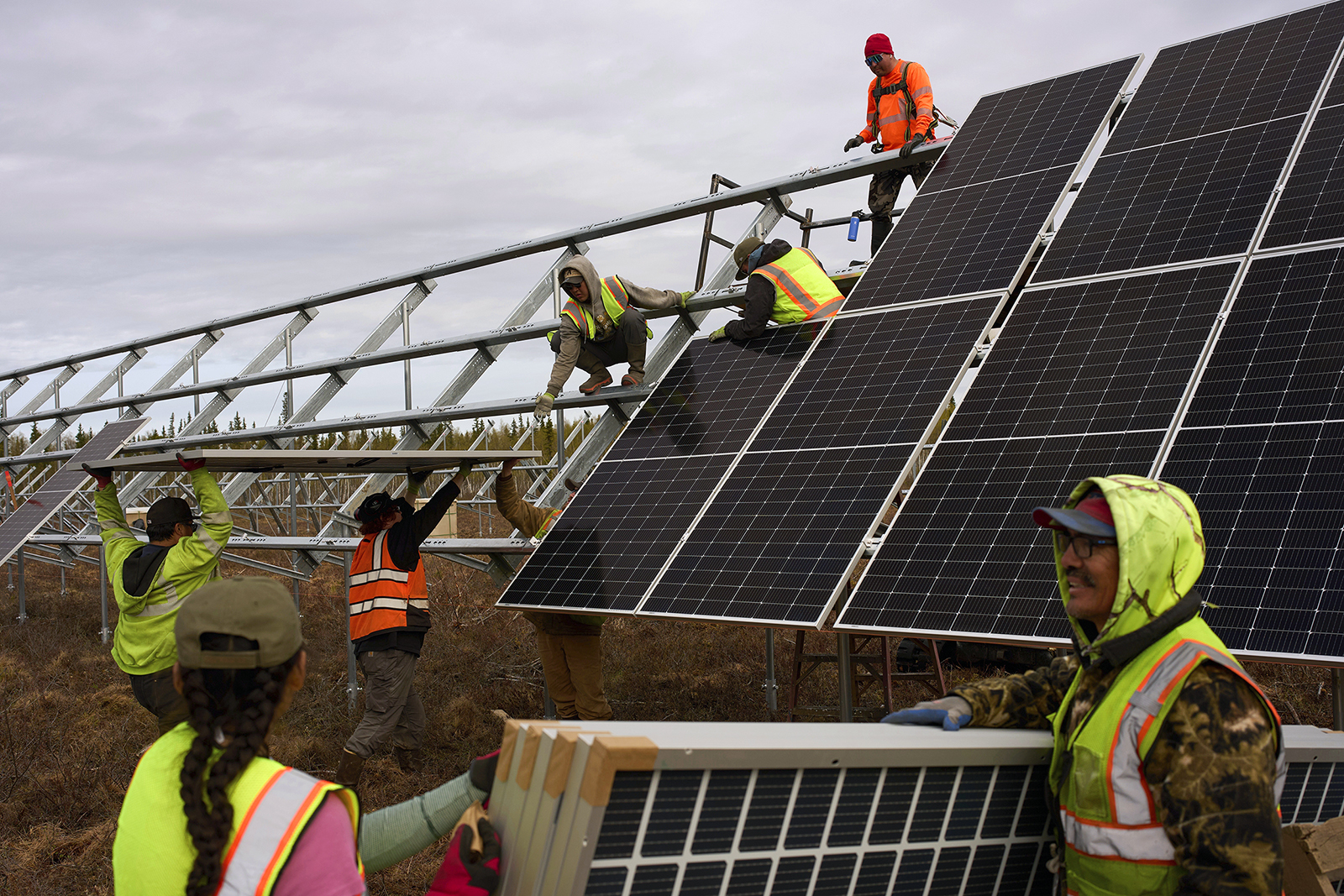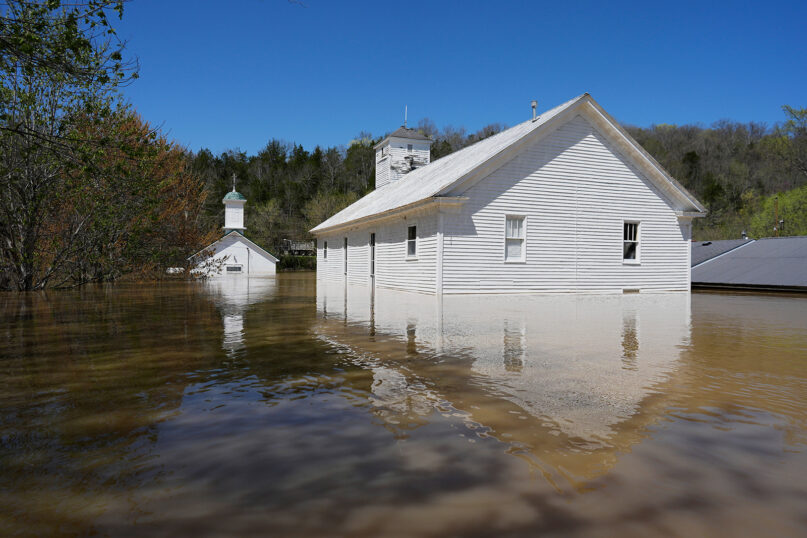
(RNS) — The last nine months have been an unmitigated disaster for the climate. The Trump administration has decimated federal policy and programming that was advancing renewable energy, creating hundreds of thousands of jobs and reducing carbon pollution.
These actions are both senseless and morally reprehensible. They will create a hotter, poorer, more violent future. And they violate the core teachings of each of our faiths.
That’s why observing Sun Day on Sept. 21 is so important. Along with organizations concerned with clean energy, justice and the climate crisis, people of faith across the country will help lead this national weekend of action. Hundreds of communities and congregations will rally to shine a light on the urgency to transition away from dangerous fossil fuels and toward a clean energy future.
On Sun Day, some will march to statehouses and city halls. Others will lead climate pilgrimages, hold climate-themed services celebrating the power of the sun and publicize the urgency with which we must transition to a clean-energy economy. But the intent is the same: to show that communities of faith are profoundly, joyfully and creatively committed to bold climate action.
Why now? Over the past five years, solar energy has grown with incredible speed around the globe and here in the United States. In the U.S., electricity created from solar in 2023 was more than eight times that of 2014, enough to power over 22 million homes. In 2024, solar and energy storage accounted for a remarkable 84% of all new U.S. electricity-generating capacity.
Since 2010, solar energy costs have dropped by 89% globally, leading activist Bill McKibben to name solar “not the Whole Foods but the Costco of energy.” Faith communities in the U.S. have been a meaningful part of solar’s meteoric rise, with 2% of American houses of worship having solar arrays as of 2021 —three times the rate of all nonresidential buildings.

Two churches, one Catholic and one Baptist, are flooded by the Kentucky River in Lockport, Ky., April 8, 2025. (AP Photo/Carolyn Kaster)
As leaders of different faiths, we are called to proclaim that caring for the Earth is a sacred duty. Beyond that, when the Earth is in a moment of extreme peril, there is a clear imperative to mobilize and take strategic action to protect and heal it. It can’t happen fast enough. The increase in floods and fires, likely worsened by the effects of climate change, contributed to more than 1 in every 100 U.S. residents being displaced from their homes in 2022. Extreme weather events are accelerating at a terrifying pace.
People of faith have long traditions of envisioning a more whole and just world. We know that we can build a more just and sustainable society, and we don’t need to stay stuck in ancient technologies — creaky power structures that pillage our world and reward a wealthy few. Clean energy technology is by its very nature more democratic, less dangerous, and abundant for all. As just one example, once solar panels are installed, the energy from the sun is endless and free. Furthermore, we can manage this transition in a way that strengthens our communities by supplying training for good jobs and building out accessible infrastructure.
Our faiths give us a moral voice and values that have grounded us for thousands of years. Judaism calls on us to shamor adamah (protect the Earth), tirdof tzedek (pursue justice) and, most fundamentally, ensure that all people can live l’dor vador (from generation to generation). Christianity bluntly states that God destroys those “who destroy the Earth” (Revelation 11:18) and recognizes Jesus’ transformative death as redemptive for all of creation (Colossians 1:15-20). Islam calls us to be just khalifa (stewards, caretakers and guardians) of the amanah (sacred trust) through enjoining what is right and forbidding what is wrong.
Sun Day is about saying loudly and clearly that we have the technology for a just transition to a clean energy future. What we need is the political will and the commitment to make it happen at the scale that is so urgently needed. We must also ensure that it reaches all people and communities — especially those who have long lived on the front lines of the climate crisis, primarily Black, brown, Indigenous and low-income communities.
Why organize in our communities of faith? To realize a clean energy future, we must fight the entrenched power structures that prop up the fossil fuel industry. We need people power.
Faith leaders and communities are already united in our commitment to the common good, to the inherent dignity of every human being, and to the right for all people and communities to thrive. A 2024 study found that 90% of U.S. Christian leaders believe in anthropogenic climate change to some extent — a far higher figure than many assume.
In the midst of a crisis of loneliness and social fracture, congregations offer community. In our synagogues, churches and mosques, we find connection and networks of people seeking meaningful engagement. Twenty-five percent of American adults — 65 million of us — gather for worship each week. Joined in faith and moral commitment, we are ready to organize and exercise our power.
In a time of ecological collapse and profound threats to democracy and freedom, the world is not only in crisis — it is in need of moral clarity and vision, and a commitment to organize. On Sun Day, we are joining our voices to insist that our path to a just, sustainable and livable future is one powered by the sun and renewables. We are walking there together with determination and, yes, urgency.
(Rabbi Jennie Rosenn is the founder and CEO of Dayenu: A Jewish Call to Climate Action. The Rev. Fletcher Harper is an Episcopal priest and executive director of GreenFaith. Imam Saffet Catovic is the United Nations director of operations for the faith-based organization Justice for All. The views expressed in this commentary do not necessarily reflect those of Religion News Service.)
